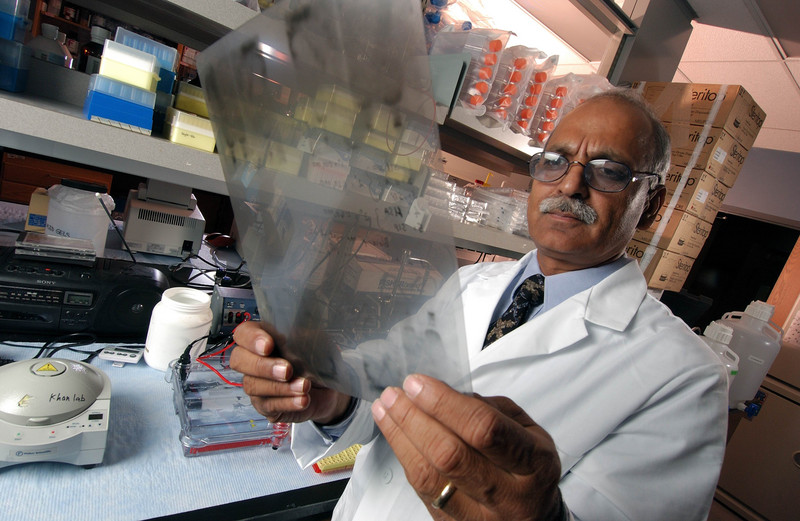February 17, 2021
GRA marks 30 years of impact
Public-private partnership generates big returns on state’s investment

ATLANTA, GA, February 17, 2021 —Thirty years of investment in university research and entrepreneurship is paying big dividends for the State of Georgia, according to metrics released by the Georgia Research Alliance (GRA).
Every $1 the state has invested in GRA’s programs has generated nearly $12 in research grants to public and private universities and in venture capital to university-launched startup companies, the Alliance showed. All told, research labs and new companies attracted an additional $7.8 billion by leveraging the state’s $661 million investment through GRA since 1990.
A nonprofit that expands university research and entrepreneurship in Georgia, GRA helps universities recruit world-class scientists to the state, then funds specialized equipment to advance their research. The scientists, GRA Eminent Scholars, then bring in more public and private research grants.
In 2003, GRA created a venture development program to seed and shape more startup companies around university inventions in Georgia. Since then, GRA’s investment of $50 million in state money has helped bring $1.6 billion in outside venture capital to the state.
The research grants and venture capital added to the universities and startups have grown workforce training in high-skilled fields. Since GRA’s founding, more than 3,600 high-tech jobs have been created in GRA-backed labs and companies.
Pindrop Security, an enterprise launched out of Georgia Tech to protect organizations from voice fraud, is an example: GRA was one of the company’s first investors, and today Pindrop employs nearly 215 professionals in the state and has raised $218M in venture capital.
Indeed, GRA’s venture development program is a strong ally in university efforts to bring more inventions and discoveries to market. An example is the Innovation Gateway program at the University of Georgia: In just a few years, the commercialization program has propelled the launch of 200-plus startup companies, each built around UGA ingenuity. GRA has provided seed funding and strategic advice for many of them.
“Without question, GRA is a model of the benefit that can be created when government, academia and industry work together with a shared focus,” says David Ratcliffe, former chairman of The Southern Company and current chair of the Alliance. “But its past success is really only a starting point. GRA’s future potential to drive investment and bolster Georgia’s reputation is enormous.”
Ratcliffe adds that GRA’s impact on Georgia’s reputation has been as important as the financial ROI the Alliance has generated. The state now ranks no. 11 in the U.S. in federal research funding, and more major companies are forging partnerships with Georgia’s university scientists. Moreover, many of the GRA Eminent Scholars are highly acclaimed for making major advances and breakthrough discoveries in their fields.
“By investing in research and entrepreneurship at Georgia’s universities, GRA has significantly added to our state’s economic development message,” says Pat Wilson, commissioner of the Georgia Department of Economic Development. “Companies want to be in close proximity to high-quality research universities and to a talented workforce. By delivering both, GRA has helped us attract businesses of all sizes to expand or establish a presence in Georgia and create jobs in every region of the state.”
“GRA’s impact on Georgia’s reputation is hard to measure, but it’s very real,” says Claude Wade, a GRA Trustee who heads up Client Experience and Atlanta Office head and Innovation Hub Leader for the global Asset Manager BlackRock. “In 2018, we chose to expand our global footprint in Georgia because of an abundance of technology talent and the vibrant start up ecosystem. The exponential growth of research at the state’s universities has been key to growing that talent.”
In 1990, a group of Georgia leaders established GRA as a nonprofit to help business, research universities and state government collaborate to build a tech-driven economy fueled in part by university research. Importantly, Gov. Zell Miller recommended funding to launch the Alliance, and he viewed GRA as an instrument to strengthen higher education and technology-based economic development in Georgia.
Getting the universities to work together has proven to be another benefit of GRA’s formation. The Alliance was an early investor in an effort by a public university, Georgia Tech, and private a university, Emory, to start a biomedical engineering department together. Founded in 1997, the Wallace H. Coulter Department undergraduate program now ranks no. 2 in the nation and has an enviable research portfolio. Over the years, three GRA Eminent Scholars have chaired the department.
In 2019, GRA helped launch the GRA Core Exchange, a program that allows a scientist at any university to use research facilities and high-tech equipment at all of the other universities. To facilitate access, the nine participating universities pooled their inventory of instrumentation into a searchable online database. They also agreed to waive administrative overhead fees.
“By investing in talent and infrastructure, GRA has played a pivotal role in Georgia State University’s meteoric rise as a research institution,” says GSU President Mark Becker. “And we’re not alone. GRA has shown to be an invaluable ally for all of Georgia’s research universities. I am proud of our partnership with GRA and what we have accomplished together during my tenure as President of Georgia State.”
GRA’s partner universities are: The University of Georgia, Augusta University, Emory University, Clark Atlanta University, Georgia Institute of Technology, Georgia State University, Mercer University and Morehouse School of Medicine.
